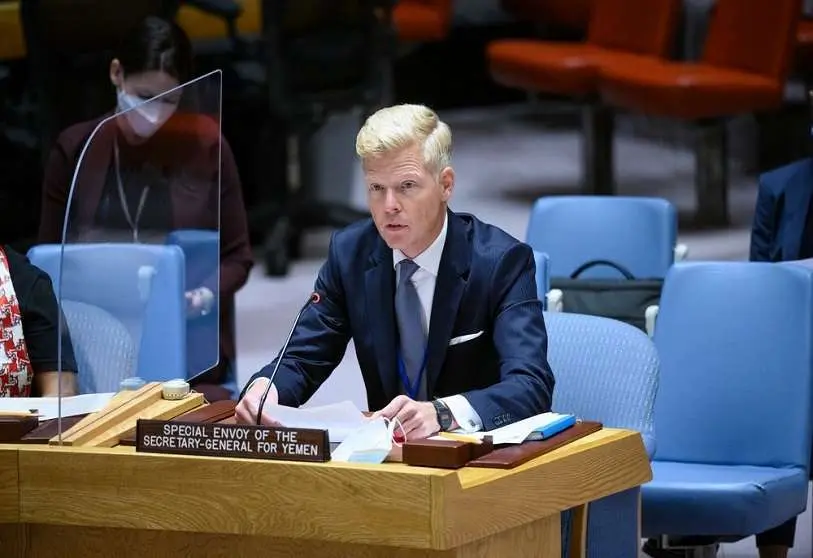Yemen: the international community renews its calls for an end to the war

Yemen is far from the end of a war that has plunged the country into the biggest humanitarian crisis in the world in the last eight years. The unusual optimism of the international community following the signing of a ceasefire in April between the Saudi-led coalition forces and the Iranian-backed Houthi rebels was dashed in October when the armistice expired. There was no agreement to extend a truce that has allowed Yemen to return to some semblance of normality.
According to the UN, there has not been a full-fledged resumption of the conflict, but the organisation's special envoy, Hans Grundberg, fears that fighting could flare up again. For this reason, the UN has asked the Yemeni insurgents to reissue the ceasefire signed by the parties in April, during the holy month of Ramadan, and then renewed twice. It was the rebel group that declined to extend the armistice, explains Grundberg, but it is in his power to bring about a new cessation of hostilities.

"I want the parties to the conflict not only to renew the truce, but to commit themselves to taking steps towards a comprehensive settlement of the conflict," UN Special Envoy Hans Grundberg told the parties. The Swedish diplomat also denounced the disappearance of five UN personnel who were kidnapped in February in the southern governorate of Abyan.
The United States has expressed itself along the same lines. The US ambassador to Yemen, Stephen Fagin, visited the coastal city of Aden on Monday, where the internationally recognised government is based, to meet with Prime Minister Maeen Abdulmalik Saeed and key members of his cabinet. In a statement a day after the meeting, Fagin warned of the unwillingness of the rebel group, dubbed Ansar Allah.

In mid-October, Saudi Crown Prince Mohammed bin Salman summoned the chairman of the Supreme Political Council and supreme commander of the Houthi armed forces, Mahdi al-Mashat, to Riyadh to discuss the conditions for a final peace deal. But the meeting between the de facto leaders of the warring parties did not take place.
"Since pushing government forces to the gates of Marib in early 2020, [the Houthis] have refused to engage in serious negotiations on a final settlement, instead waiting for the population under their control to accept their position as a state," writes senior researcher at the Sana'a Centre for Strategic Studies Abdulghani Al-Iryani. "Moreover, the military successes have empowered the more militant factions of the movement, sidelining moderates who advocated compromise and concessions".

Hours before the meeting between Maeen Abdulmalik and the US ambassador to Aden, the Yemeni prime minister's office denounced the drone attack by Houthi forces on the port of al-Dhaba in the southern governorate controlled by his government. The insurgents did not allow an international vessel to drill for oil.
"Houthi attacks on Yemeni ports only harm the Yemeni people by worsening fuel shortages," US diplomat Stephen Fagin warned in a statement issued in response to the action, calling on the insurgents to "end their threats to international maritime commerce".








